12 women - body image
1/32
There's no tags or description
Looks like no tags are added yet.
Name | Mastery | Learn | Test | Matching | Spaced |
|---|
No study sessions yet.
33 Terms
how a person perceives their physical appearance and the thoughts and emotions that result from that perception.
feelings can be positive, negative, or mixed.
What does body image refer to? And What types of feelings can result from body image?
personal experiences
environmental influences such as culture, media, and social relationships.
What shapes a person’s body image?
Perceptual Aspect (The way you see yourself)
Affective Aspect (The way you feel about the way you look)
Cognitive Aspect (The way you think about your body)
Behavioral Aspect (The actions you take based on your body image)
Mention the Aspects of Body Image?
how a person perceives their body, which may not always match reality.
► someone may think they are overweight even when they are actually underweight.
What is the perceptual aspect of body image?
emotions and feelings a person has about their body:
► satisfaction or dissatisfaction with appearance, weight, shape, or specific body parts.
What is the affective aspect of body image?
thoughts and beliefs a person has about their appearance,
► believing they will feel better if they lose weight or look better if they gain muscle.
What is the cognitive aspect of body image?
the behaviors a person engages in as a response to how they feel about their body
► excessive exercise
► food restriction
► avoiding social situations.
What is the behavioral aspect of body image?
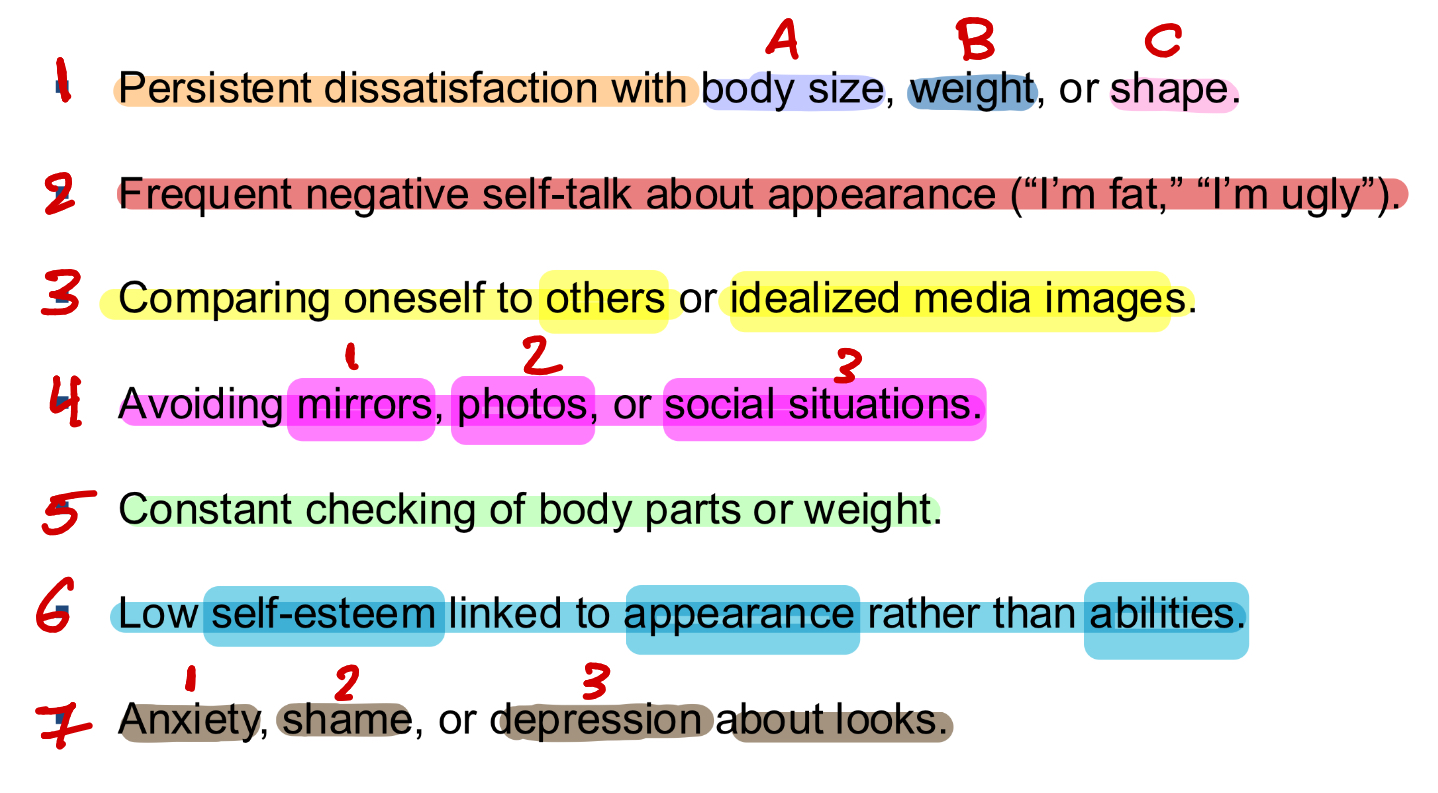
What are the common symptoms and signs of negative body image?
↑ better physical and psychological health
↑ greater personal growth
↑ higher confidence.
Why is positive body image important overall?
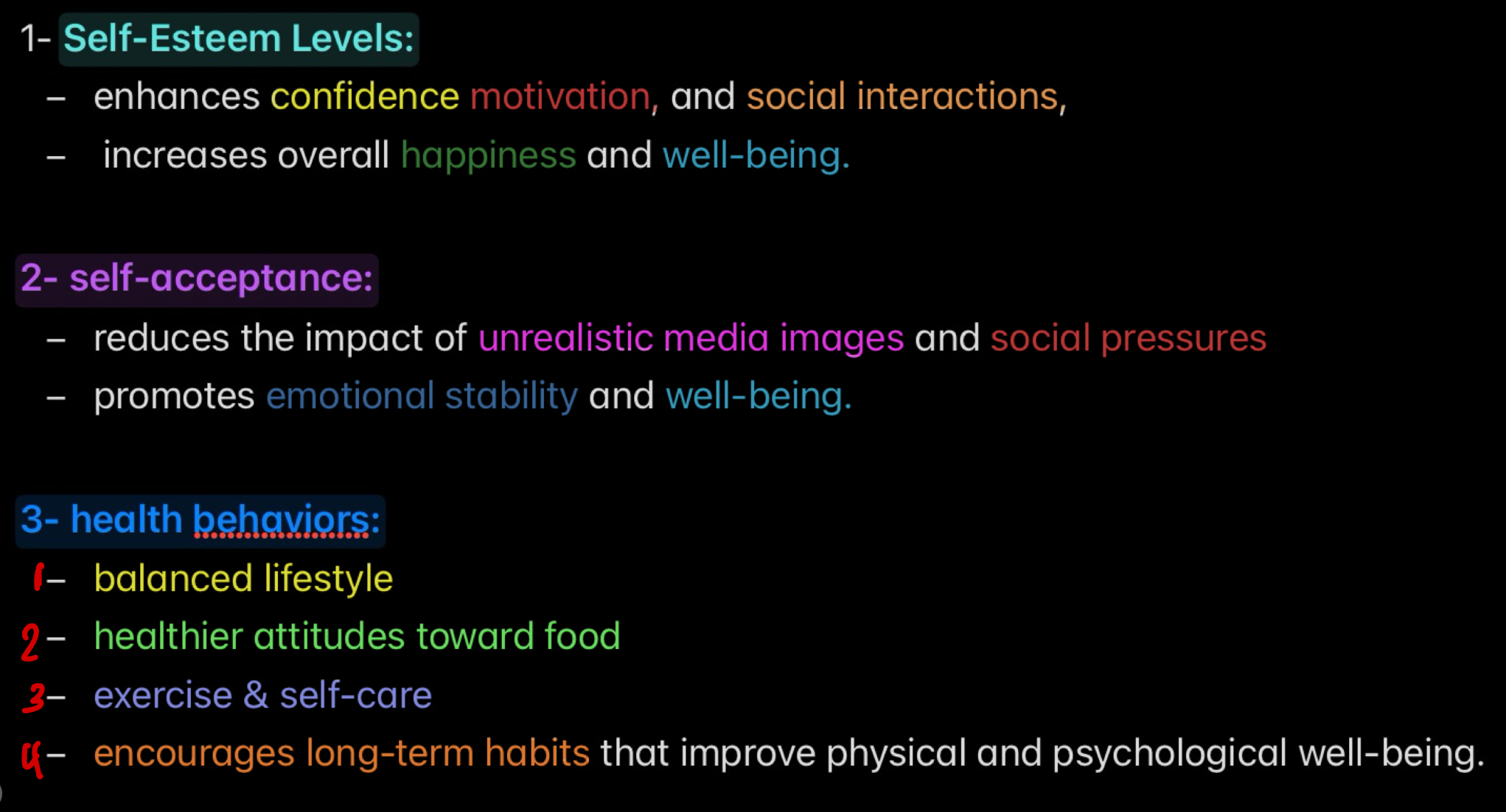
the positive body image influences?
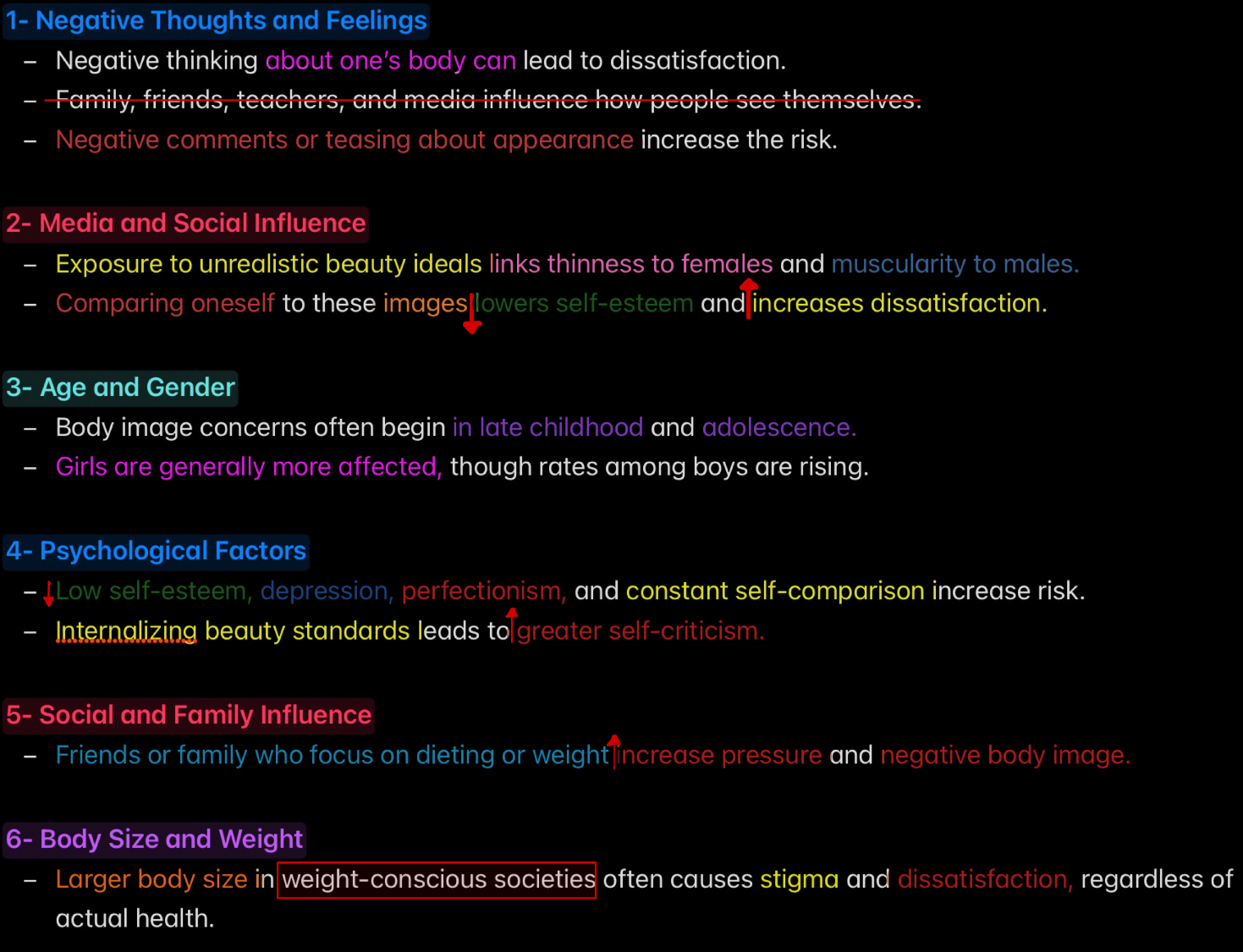
What Causes Body Dissatisfaction?
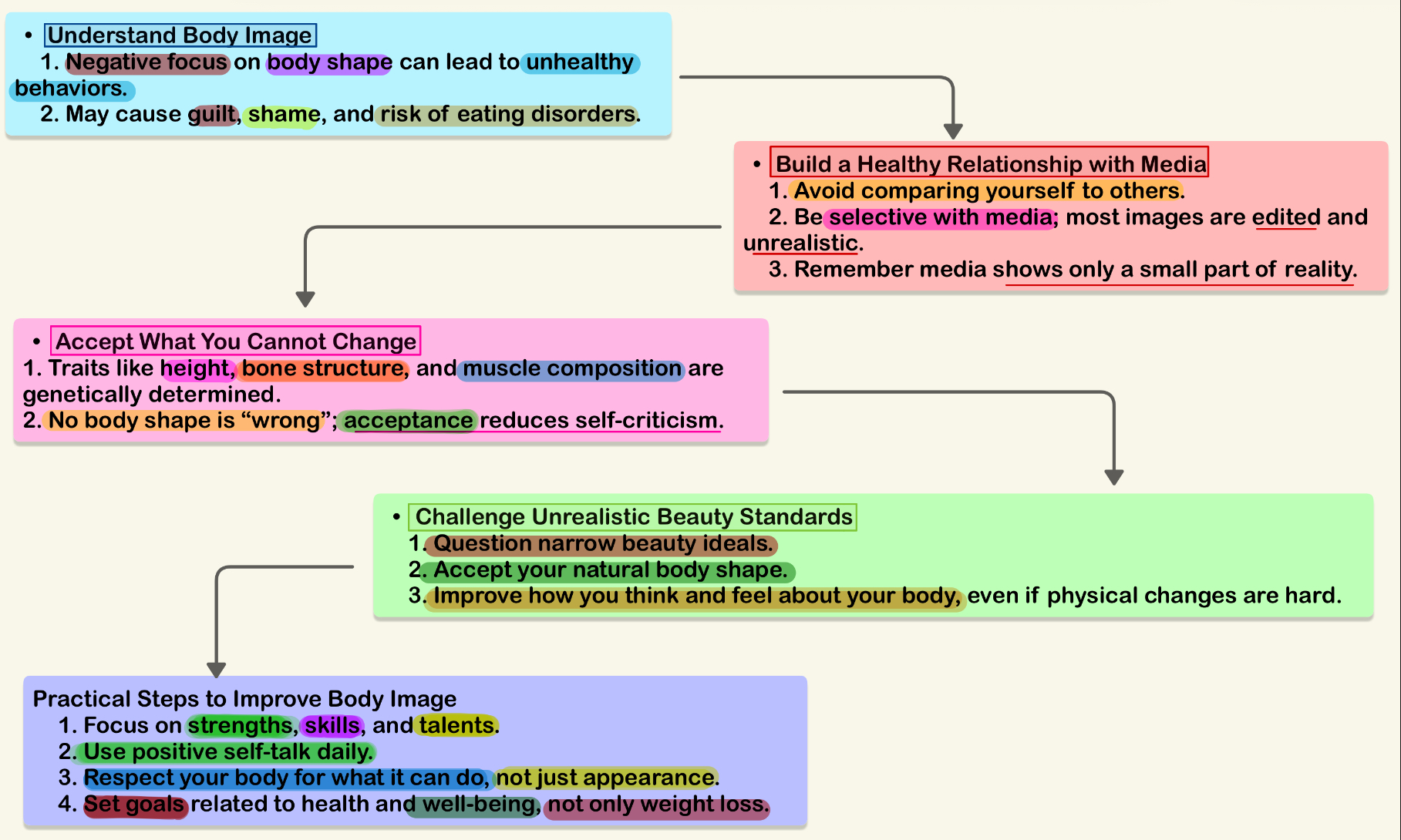
How to improve body image?
The “thin ideal” model & perceived discrepancy (feeling that one’s body does not match this ideal)
often lead to :
→ body dissatisfaction
→ which can directly cause depression or lead to dieting behaviors
that may fail and increase depression.
Summary: Negative body image → Dieting and Failure → Depression.
What is the relationship between body image and depression?
Depression
Negative thoughts are strongly linked to ?
People with eating disorders selectively focus on their “ugly” body parts,
while people without eating disorders focus on their beautiful body parts.
This selective attention reinforces:
negative body image
low self-esteem.
What is The Relationship Between Body Image and eating disorders?
► Negative thoughts + low self-esteem + unrealistic beauty goals = eating disorders
► Negative body image = ↑ anxiety & self consciousness
► Constant worry about appearance leads to:
Social withdrawal
↓ Confidence
What is the relationship between body image, anxiety and eating disorders?
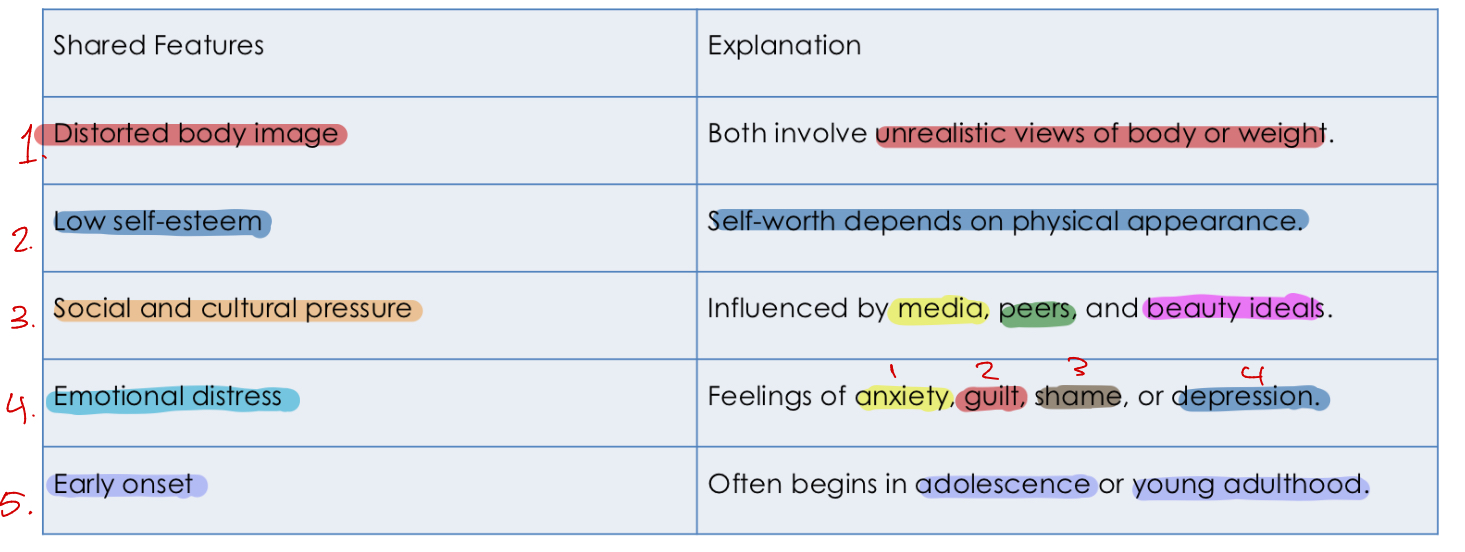
What are the shared features of body dysmorphic disorder (BDD) and eating disorders (ED) regarding body perception?
Yes, but they are often a major risk factor for developing one.
Can body image issues exist without an eating disorder?
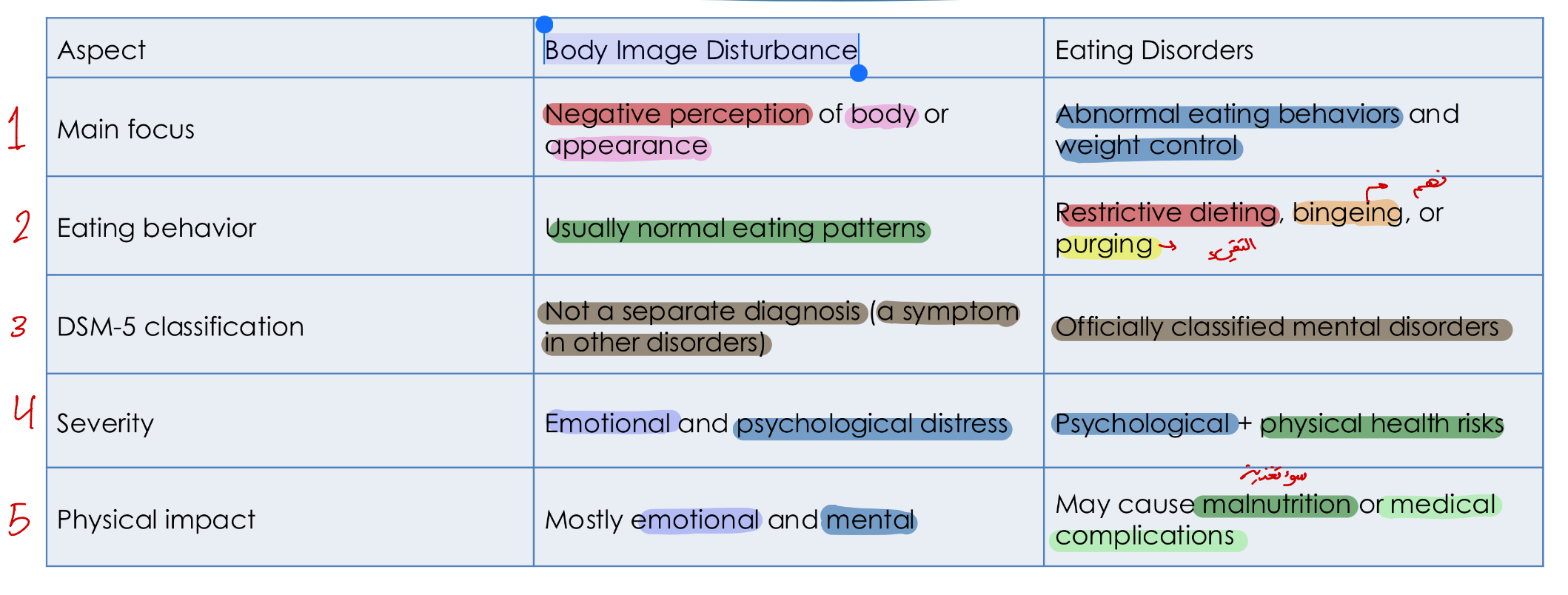
Compare between Differences Between body image and Eating Disorders?
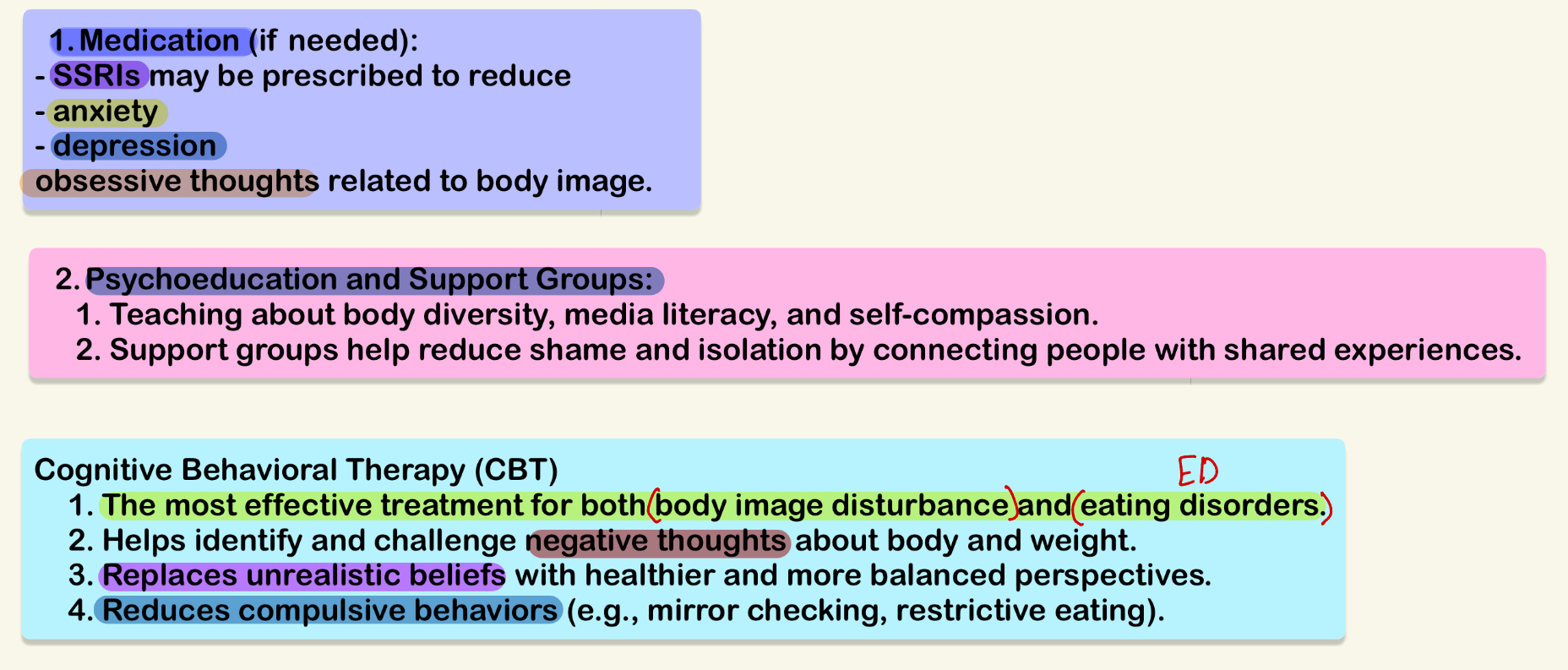
What are the suitable treatments & therapy for body image disturbance?
True
Body image includes how a person sees, thinks, and feels about their body, not only how they look. ✅❌
False
Body image is limited to how the body looks and does not involve thoughts or feelings. ✅❌
True
A positive body image contributes to better self-esteem, stronger Self-Acceptance, and a more Healthy Outlook ✅❌
False
A negative body image contributes to better self-esteem, stronger Self-Acceptance, and a more Healthy Outlook ✅❌
True
A negative body image can increase the risk of depression, anxiety, or the development of eating disorders. ✅❌
False
A positive body image can increase the risk of depression, anxiety, or the development of eating disorders. ✅❌
True
Social media, cultural ideals, and peer pressure are major factors that strongly influence body dissatisfaction ✅❌
True
Body image disturbance involves distortions in how a person sees and feels about their body. ✅❌
True
Eating disorders are behavioral conditions that can result from negative body image and lead to harmful eating patterns. ✅❌
False
Eating disorders are behavioral conditions that can result from positive body image and lead to harmful eating patterns. ✅❌
True
Therapy, especially CBT, can help change negative thoughts, build Self-Acceptance, and promote body positivity. ✅❌
False
Therapy, including CBT, cannot change negative thoughts or promote body positivity. ✅❌
True
Accepting and appreciating your body is an essential first step toward emotional and physical well-being. ✅❌